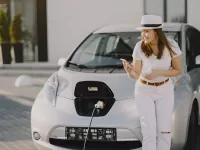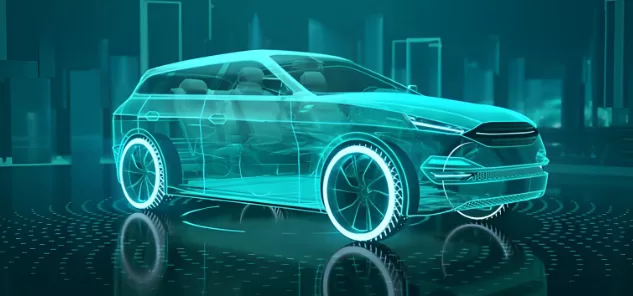The Current State of EV Batteries
Electric vehicle batteries have come a long way since their initial introduction. Today, most EVs are equipped with lithium-ion batteries, which offer high energy density and a long lifespan. However, many potential EV buyers remain hesitant, worried about the long-term durability of these batteries. Contrary to popular belief, a study from Geotab, a Canadian company specializing in telematics, revealed that EV batteries often outlast the vehicles themselves, and this trend is only expected to improve with time.
Despite these promising findings, the question remains: how can manufacturers push the boundaries even further to maximize the life of EV batteries? That’s where the recent developments from Stanford come into play.
AI-Powered Battery Longevity
A team of researchers from Stanford University, led by William Chueh, has discovered a method to increase battery lifespan by approximately 50%—without changing the underlying chemistry of the cells. The innovation lies in optimizing the first charge of the battery, using artificial intelligence to fine-tune the process.
One of the key insights from the research is that the initial charge delivered to the battery before the vehicle reaches the customer plays a pivotal role in determining its long-term performance. Most EV manufacturers currently use a low-current charge over several hours for this first fill-up. However, Stanford’s research suggests that a high-current charge during this stage could drastically improve battery efficiency and durability.
The Role of Artificial Intelligence in Battery Charging
Artificial intelligence played a crucial role in this discovery. By analyzing the charging process, AI was able to identify the most critical factors that influence battery performance during the first charge. According to the Stanford team, a high-current charge during this phase activates more ions, creating additional space in the battery’s positive electrode. This, in turn, enhances the battery’s ability to charge and discharge more efficiently.
The AI-powered model was tested on 186 batteries, and the results were staggering. Batteries charged with a higher current during their initial fill-up were able to handle up to 2,500 charging cycles, compared to 1,500 cycles for those charged at a lower current. This discovery could extend the life of EV batteries by several years, potentially surpassing the lifespan of the vehicles themselves.
Slowing Down Battery Degradation
One of the most significant challenges for EV manufacturers is slowing down battery degradation. Over time, the process of charging and discharging causes the battery’s capacity to diminish, resulting in reduced range and efficiency. However, the Stanford study found that the initial high-current charge helps form a protective layer between the negative and positive electrodes, reducing wear and tear on the battery.
This protective layer slows down the degradation process, allowing the battery to retain more of its original capacity over time. This is a critical advantage for EV owners, as battery replacement is one of the most significant expenses associated with electric vehicles. By extending the lifespan of the battery, this new approach could make EVs more cost-effective in the long run.
Immediate Implementation and Industry Impact
What makes this discovery particularly exciting is that it can be implemented immediately. According to William Chueh, the solution doesn’t require any changes to the battery’s chemistry or design. Instead, it involves a simple modification in the final stage of the battery manufacturing process. This means that automakers could start using this method without facing lengthy delays or costly retooling of production lines.
Moreover, this breakthrough could have far-reaching implications for the EV market. A longer-lasting battery means fewer replacements and lower overall costs for consumers, which could help alleviate one of the main concerns about electric vehicle ownership. Additionally, by reducing the frequency of battery replacements, the environmental impact of EV production could also be minimized, making electric vehicles an even more attractive option for eco-conscious consumers.
Future Outlook for Electric Vehicles
As the global shift towards electric mobility accelerates, innovations like this one will play a pivotal role in shaping the future of transportation. Battery longevity has always been a critical factor in the widespread adoption of electric vehicles, and this new AI-powered approach offers a promising solution to one of the industry’s biggest challenges.
Furthermore, this breakthrough could open the door to more AI-driven advancements in battery technology. With artificial intelligence becoming an increasingly integral part of EV development, we may see even more significant improvements in battery performance, efficiency, and sustainability in the coming years.




















0 Comments